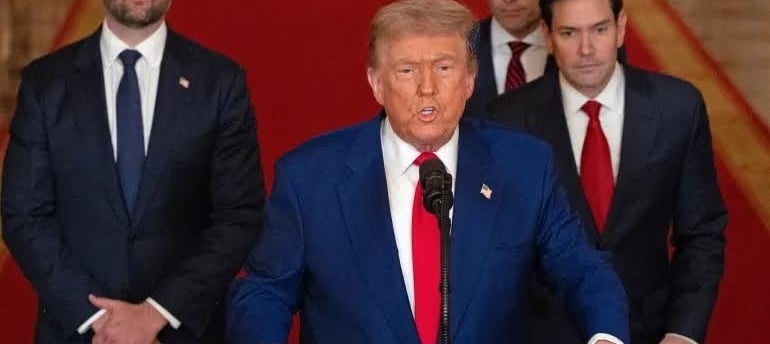Global Reactions to U.S. Strikes on Iranian Nuclear Sites: UN, Europe, and Arab World Respond
World leaders react to U.S. airstrikes on Iran’s nuclear facilities with calls for diplomacy, warnings of escalation, and condemnation of American aggression. Full breakdown by country.
NEWSGLOBALREPORT
Refaat Ibrahim
6/22/20253 min read


World leaders have voiced varied reactions to the U.S. airstrikes on three Iranian nuclear facilities early Sunday. While some governments called for calm and de-escalation, others condemned the attacks or warned of grave consequences for regional and international stability. Here's a breakdown of key international and regional responses:
United Nations
UN Secretary-General António Guterres expressed deep concern over the U.S. strikes, describing them as a “dangerous escalation in a region already on the edge.”
In an official statement, Guterres warned, “At this critical moment, it is essential to avoid a spiral of chaos. There is no military solution; the only way forward is through diplomacy. Peace remains the only hope.”
United Kingdom
British Prime Minister Keir Starmer stated that Iran “must never be allowed to develop a nuclear weapon” and that the United States had “taken action to reduce this threat.”
He added that Iran’s nuclear program poses a serious threat to global security and emphasized the need for regional stability. Starmer called on Tehran to return to negotiations and seek a diplomatic resolution.
NATO
A spokesperson for the North Atlantic Treaty Organization (NATO) told Reuters that the alliance is “closely monitoring the situation,” without providing an official stance on the U.S. operation.
Australia
An Australian government spokesperson declared that Iran’s nuclear and ballistic missile programs pose a “threat to international peace and security.”
The statement urged de-escalation, emphasizing the need for dialogue and diplomacy amidst a rapidly deteriorating security environment in the region.
New Zealand
New Zealand Foreign Minister Winston Peters described the ongoing military activity in the Middle East as “deeply concerning.”
He urged all parties to return to dialogue, which he said is “a more sustainable path forward than military action.” New Zealand reaffirmed its strong support for diplomatic solutions.
Arab Reactions: Caution, Condemnation, and Calls for Diplomacy
Saudi Arabia
Saudi Arabia expressed its “deep concern” over the unfolding crisis and called on the international community to intensify efforts to reach a political solution that ensures regional stability.
The kingdom urged restraint during what it described as an exceptionally sensitive moment.
Iraq
Iraq condemned the U.S. strikes on Iran’s nuclear sites, warning that the escalation poses a serious threat to regional peace and stability.
Government spokesperson Basem Al-Awadi stressed that military solutions cannot substitute dialogue and warned that continued attacks would have consequences far beyond any one country's borders.
Houthi Movement (Yemen)
The political bureau of Yemen’s Houthi movement condemned the U.S. operation, calling it “a cowardly and aggressive assault on the sovereign Islamic Republic of Iran.”
The statement added that the strike was a flagrant violation of international law and a direct threat to global peace and security.
Reactions from the Americas and the Global South
United States (Domestic)
Within the U.S., President Donald Trump faced sharp criticism.
House Democratic Leader Hakeem Jeffries accused Trump of misleading the public and engaging in military action without Congressional approval, warning that the strike could drag America into a “potentially catastrophic war in the Middle East.”
Venezuela
Venezuelan Foreign Minister Yvan Gil strongly condemned what he called “U.S. military aggression against Iran,” demanding an immediate halt to hostilities.
Cuba
Cuban President Miguel Díaz-Canel posted on X (formerly Twitter), “We strongly condemn the U.S. bombing of Iranian nuclear facilities, a dangerous escalation that violates the UN Charter and international law. This attack plunges humanity into a crisis with irreversible consequences.”
Chile
Chilean President Gabriel Boric labeled the U.S. airstrikes “illegal” and warned of the potential for broader instability.
Mexico
Mexico’s Ministry of Foreign Affairs issued an urgent call for diplomatic dialogue to ensure peace between conflicting parties in the Middle East.
It reiterated Mexico’s commitment to peaceful foreign policy and emphasized the urgent need for de-escalation and the restoration of peaceful coexistence among regional actors.
Israel Praises the U.S. Strike as a “Historic Turning Point”
In contrast, Israeli Prime Minister Benjamin Netanyahu praised the U.S. airstrikes, calling them a “bold and historic move” that could pave the way to regional peace.
Netanyahu thanked President Trump for what he described as “a courageous decision,” positioning the operation as a deterrent against Iran’s nuclear ambitions.
Background: How the Crisis Unfolded
Early Sunday, the United States officially entered the Israel-Iran war by launching a “highly successful” operation targeting Fordow, Natanz, and Isfahan, three of Iran’s most important nuclear sites.
Since June 13, Israel, with American backing, has carried out multiple attacks on Iranian nuclear, military, and ballistic missile infrastructure, including strikes against senior scientists and commanders.
Iran responded with its largest-ever barrage of ballistic missiles and drones toward Israeli territory, amid stalled negotiations between Tehran and Washington over Iran’s nuclear program.
Source: International Agencies
Awareness
Documenting reality, amplifying Palestinian voices, raising awareness.
Contact Us:
resistant.p.pens@gmail.com
Follow our social media
